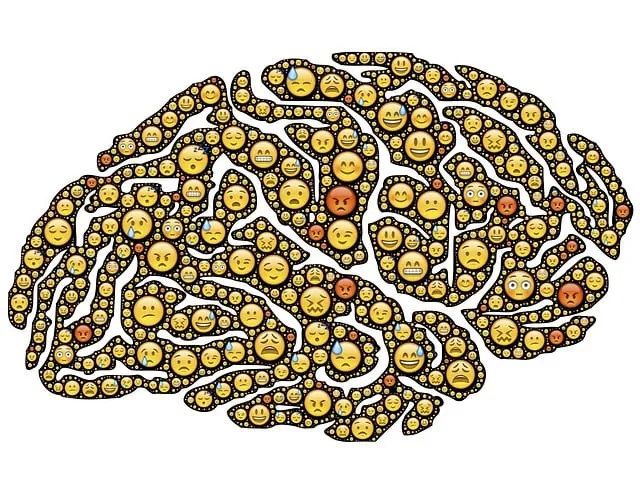The media's representation of mental illness significantly impacts public perception, with positive depictions like those in Englewood Kaiser Permanente mental health center reviews encouraging help-seeking behaviors. Negative or inaccurate portrayals can hinder crisis intervention and burnout prevention. Effective media storytelling, backed by collaborations with experts and lived experiences, fosters awareness, understanding, and reduction of stigma surrounding mental health issues, ultimately revolutionizing societal views and creating supportive environments for affected individuals.
Media portrayal of mental illness significantly influences public perception and understanding. This article explores how media representation can challenge stigma, or, conversely, perpetuate harmful stereotypes, with a focus on solutions. We examine the role models like the Englewood Kaiser Permanente Mental Health Center play in promoting positive narratives around mental health. Additionally, we offer strategies to enhance media accountability, encouraging accurate and sensitive depictions of mental illness, as supported by engaging with organizations like Englewood Kaiser Permanente mental health center reviews highlight successful initiatives.
- Understanding the Impact of Media Portrayal on Mental Health Perception
- Englewood Kaiser Permanente Mental Health Center: A Model for Positive Representation
- Strategies to Enhance Media Accountability and Promote Accurate Mental Illness Depictions
Understanding the Impact of Media Portrayal on Mental Health Perception

The media’s portrayal of mental illness can significantly shape public perception and understanding of various psychological conditions. This is especially pertinent when considering that many individuals struggling with their mental health often turn to media for information, entertainment, or a sense of community. The way mental illness is depicted in movies, television shows, and news coverage can either perpetuate harmful stereotypes or offer valuable insights and empathy. For instance, the Englewood Kaiser Permanente mental health center reviews highlight how positive representations can encourage individuals to seek help without stigma.
However, negative or inaccurate portrayals can lead to a misinformed public, potentially hindering crisis intervention guidance and burnout prevention strategies. Communication strategies that are sensitive, accurate, and inclusive are essential in media representation to foster a supportive environment for mental health discussions. By promoting awareness and understanding through the right storytelling, media has the power to revolutionize how society views and treats individuals with mental illnesses.
Englewood Kaiser Permanente Mental Health Center: A Model for Positive Representation

The Englewood Kaiser Permanente Mental Health Center stands as a beacon of hope and accurate representation in media portrayal of mental health issues. This facility has garnered positive attention through its comprehensive approach, offering a wide array of services tailored to diverse mental health needs. Reviews consistently highlight the center’s commitment to patient-centered care, emphasizing personalized treatment plans that address not just symptoms but also underlying causes.
By integrating self-care practices and promoting emotional regulation techniques, Englewood Kaiser Permanente goes beyond traditional therapy models. Their holistic approach acknowledges the interconnectedness of mental, physical, and emotional well-being. Moreover, the center actively engages in Mental Health Policy Analysis and Advocacy, driving systemic changes to reduce stigma and improve access to quality care. This multifaceted strategy ensures that individuals seeking support receive not just effective treatment but also a sense of empowerment and community connection.
Strategies to Enhance Media Accountability and Promote Accurate Mental Illness Depictions

Media has a significant impact on shaping public perceptions about mental health. To enhance accountability and promote accurate depictions, media outlets should collaborate with experts from reputable institutions like the Englewood Kaiser Permanente mental health center. Incorporating Self-Awareness Exercises and Emotional Well-being Promotion Techniques in storytelling processes can ensure sensitivity and depth in character development related to mental illness.
Additionally, involving individuals with lived experiences in production teams can offer valuable insights. Encouraging Self-Care Practices among content creators and actors can also contribute to realistic portrayals. By implementing these strategies, media can challenge stereotypes, foster understanding, and potentially reduce the stigma surrounding mental health issues, as evidenced by positive changes seen in Kaiser Permanente mental health center reviews.
Mental illness representation in media has a profound impact on public perception and understanding. By studying successful models like the Englewood Kaiser Permanente Mental Health Center, we can identify strategies for positive depiction that challenge stigma and foster empathy. Enhancing media accountability through accurate portrayals is crucial, as it can significantly influence societal attitudes towards mental health. Encouraging diverse and authentic representations in film, television, and news media is essential to creating a more inclusive and supportive environment for those living with mental illness, as evidenced by the positive reception of initiatives like Englewood Kaiser Permanente mental health center reviews.


